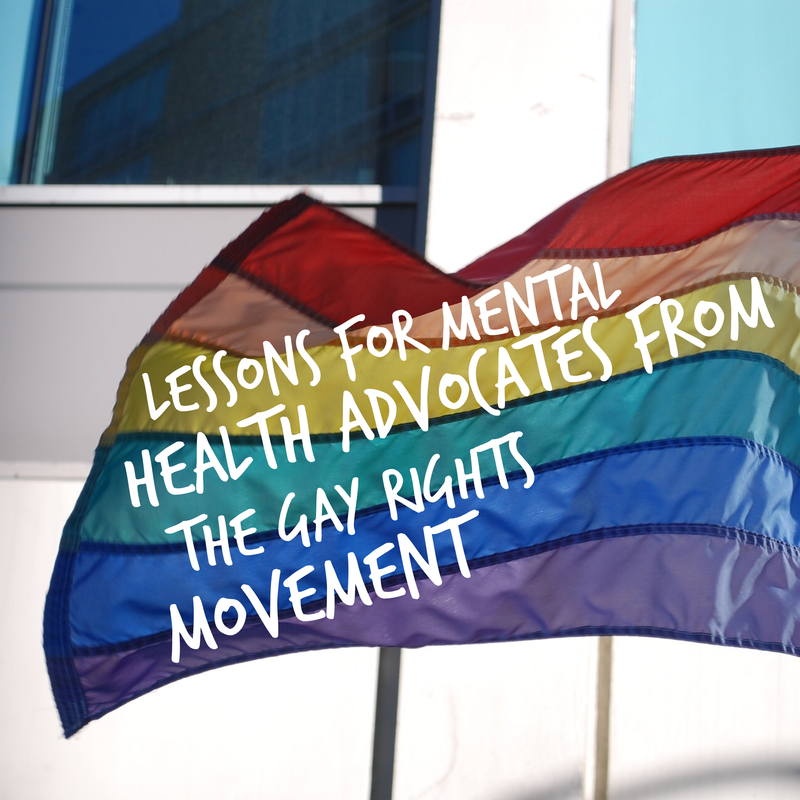
This is not a political post…….they are not allowed on our platform and I don’t write them.
After watching the reaction in the United States to the Supreme Court’s ruling on gay marriage, I feel that there is an opportunity for the mental health community and our advocacy efforts. The Reaction The reaction from the news media, government, corporations, celebrities and social media has been astonishing.
Could you have imagined any of this a decade ago? What happened and what can we learn from this massive paradigm shift to help people struggling with mental illness? The Math The Center for Disease Control (CDC) issued statistics in 2014 (Link) finding that 96.6% of adults over the age of 18 identified as straight. This suggests that about 3.4% of the population was directly affected by the ruling. The National Alliance on Mental Illness tells us that 1 in 4 adults are effected by mental illness. Said differently, over seven times the number of people are battling mental illness than had a vested interest in the right to marriage equality. A simple Google search comparing results for each causes efforts tells the same story. Gay rights advocacy returned 17.9 million results verse 66.3 million for mental health advocacy.
The Implications
There are thousands of fantastic people and organizations working in the mental health community. But, the reality is we are not getting the same results as those working for gay rights. Why is that? I have never wanted to ‘fight stigma’ with the ConquerWorry.org platform. Based on my experience it just appeared futile as someone is going to think what they want to think. I am starting to change my thoughts on that narrative. Last year I had an opportunity to interview Dr. Jon Rottenberg on the Conquer Worry Podcast. He is the author of The Depths: The Evolutionary Origins of the Depression Epidemic. He suggested that the youth of today are open to social change more than any other generation. Jon went on to say that could have long term implications for the mental health community as it relates to stigma. After seeing the reaction to the Supreme Courts ruling, I have to agree and the power of grassroots stigma fighting are apparent. Consider that A WSJ/NBC survey in March found that 59% of Americans support same-sex marriage while in 2004 that number was only 30%. A 100% increase in 11 years! The Goal Our mission at ConquerWorry.org has been to create awareness of the resource that are available to those who struggle with their mental health. The first step to recovery is getting professional help and it is a step that too few people actually take. The consequences of not getting help can be dire. Imagine if corporations, governments, celebrities and social media platforms were actively advocating to reduce the stigma for those struggling with their mental health? What type of results would we see? How many lives could be saved or changed for the better? Let’s get to work. Jay Coulter 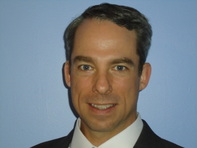
Jay Coulter is a Mental Health Advocate, Professional Speaker, Blogger, Podcast Producer and founder of ConquerWorry.org. The platform's mission is to create awareness of the resources that are available to those who struggle with their mental health. Conquer Worry has over 100,000 social media followers and we would love to have you in our community. The ConquerWorry.org community can be found online and on most social media platforms.
TWITTER | FACEBOOK | INSTAGRAM | PINTEREST | MEDIUM The Conquer Worry Podcast with Jay Coulter can be found on iTunes |YouTube | Stitcher | TuneIn Radio
0 Comments
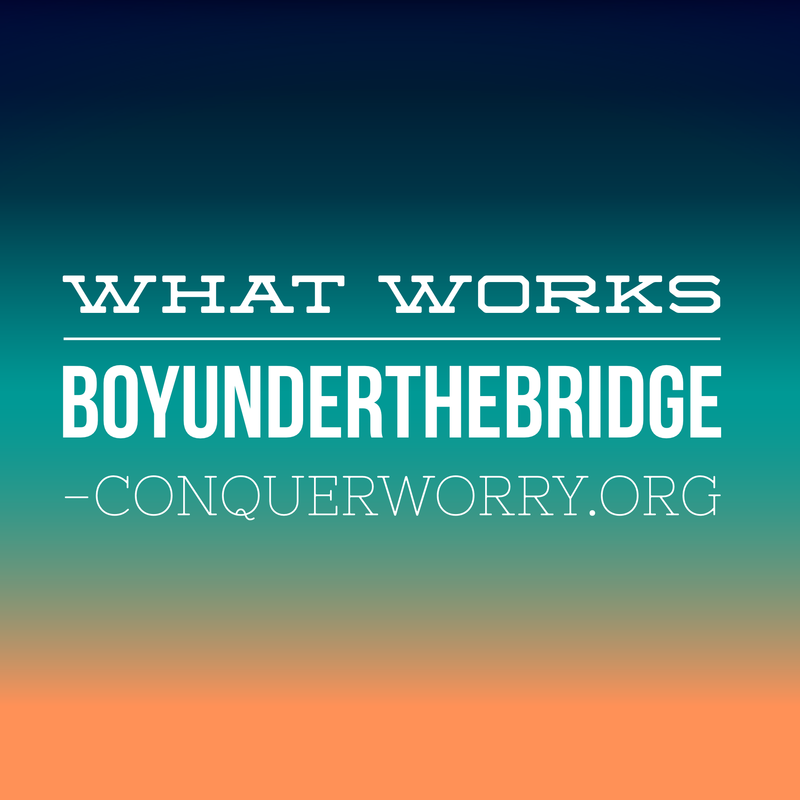
Normal isn’t 9 , 6 or 3. It’s whatever volume you ‘normally’ watch tv at.
Normal isn’t a particular channel, it’s whatever channel you ‘normally’ watch. Can we say the same about our types of thoughts and the intensity of our feelings? I read symptoms lists, and don’t think anything is out of the ordinary, well, because that’s how I’m used to feeling. With the loss of Robbin Williams, I’ve come to seen how feelings are such a personalised matter – and a lonely one. It’s easy to look at someone in his position and say that you don’t understand how such a tragedy could come to be and happen. And that’s exactly it. You don’t. I don’t. No one can say a particular approach will certainly work, but one thing I’ve identified that does, is making a commitment to getting better, identifying a supportive community, and making choices when I reach particular neurological crossroads that lead to depression’s dead end. I choose to believe there are many things out of my control, but I’m pressing the most important buttons, like purpose, vision, hope, faith, passion. I can also hit mute where I need to. I choose to remember all I’ve fought through to be here. I choose to respect and pursue what I love & enjoy, not let anyone or ego turn me around I choose to remember life has no structured pathway and it’s shared by dangerous drivers and dropped dollars. I can be pleasently surprised the same way I’ve been unexpectedly disappointed. I choose to see the beauty and strength in the bland, ordinary and daily. I don’t need to google motivational pictures. I choose to be inspired by those standing on peaks I seek to reach. I choose to remember tomorrow won’t come before today. Serving the other first is bad customer service. I choose to collect my moments of joy, love, hope and strength in writing or memory for when they are sparse. I’ll hand them out like candy to a crying child. I choose to learn from everyone and every experience. I’ll graduate when I’m dead. I choose to see life as giant canvas, each day as a fresh page. Art is subjective, so is success.
Connect with BoyUnderTheBridge
Instagram: @boyunderbridge Twitter: @boyunderbridge Facebook: boyunderbridge 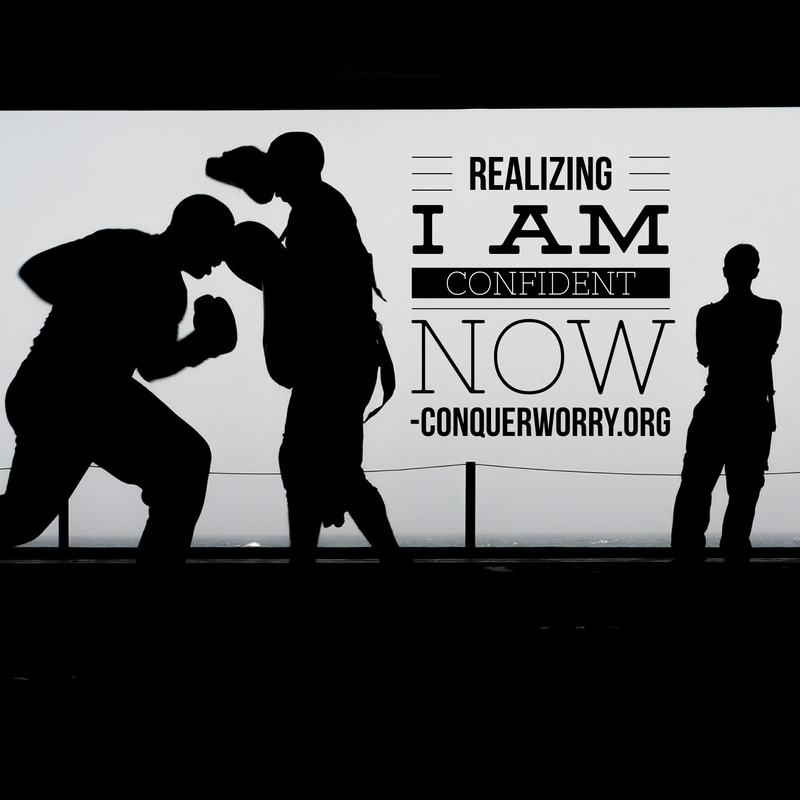
I played organised football from the age of 5 and I loved that. I turned out to be well thought of by others and I went quite far compared to the average person playing some trials for pro clubs, being semi-pro from the age of 15. In hindsight I must have been good, though I never thought that of myself. Others have told me I was, they have nonchalantly told others that I was, that "if anyone can do that skill it's him". I never bought it as I was part of a team, I played my part like everyone else, I'd get upset at others if they didn't but I knew I just had to do my job for them, whether I did a good or bad job only I was the judge and I was super self critical, so I never appreciated what others clearly saw in me.
I had the most fantastic coach, a man called Paul Kelly who was the Academy manager for Wigan Athletic and Everton FC at different stages. Paul was one of those mentor figures that made you feel that you were a critical member of the team and he made everyone feel like that, his skills, tactics and technique were brilliant training sessions legendary and we went unbeaten for a few years against bigger and better teams. Again, I only ever felt I was confident in a match because he made me feel like that and my team mates were excellent, I just had to what was asked of me. By the age of 16 I had been carrying a bad injury for two years, I had always had knee niggles but there as never a time I didn't play because of it. The injury got worse and worse, I was a growing boy who was playing for men's teams training with men multiple times per week, I played matched for a local Sunday team and the school as well as the teachers team, I played because I loved it ignoring the the reason asked to and taking heart from it. So I was 16 with no confidence and a bad injury. In the end I was beaten when things where looking more promising for me than ever I had interest from clubs, even my beloved Liverpool, but I had to miss the trials, my dream was fading, my body was failing and my confidence was already shot. I had nothing to show for 12 years of 100% focus and commitment, I had sacrificed so much and now for what?! By the age of 18 I had not played for 2 years and my body still wasn't fixed until an operation, thanks to a job with health care included, at the age of 22. I will fill you in another day on what has happened since but finally at the age of 31 I have found my confidence and passion again, something I will never stop if I take care of myself properly. I have been practicing Brazilian Jiu-Jitsu for 3 months now and I have never loved a sport more, FACT! I am clearly the whitest of white belts when we roll (BJJ's equivalent of sparring in boxing) but gradually through regular training with blue and purple belts I have found that actually I not too shabby for my level and often, but not always, get high praise from my superiors. I was better at football than I am at BJJ but football was never able to make me feel like I was responsible for my own success, that if I did something good it wasn't because of my team mates I am on my own on the mat in that moment. What's more you still get that support and direction from those you're aiming to choke out as though you are a team, it's a weird feeling and one that can't be matched in my opinion by other sports. To get the praise from a black belt when you pass his guard, or a purple belt for almost securing an arm bar but being brave enough to try is so rewarding. I also know when I compete in my first competition, in front of maybe hundreds of people, it will be against people of same age and belt colour as me so why can't I do well? There is no reason and if I get beat in every match I can take achievement in my progress for getting to the mat, I couldn't never done that without the confidence BJJ has given me. I respect everyone that does BJJ and hope that they get as much in their lifetime from it as I have in 3 Months, I am so much more confident now. In fact I am a Euphoric Being Robert Shelbourne 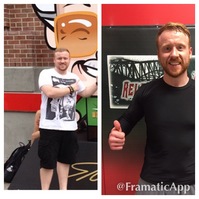
My name is Robert Shelbourne, I am 31 years old and have been managing depression and anxiety "disorders" for best part of a decade. When presented exclusively with the option of prescription meds and a long waiting list I refused the meds and set about complementing my CBT with my 13 year experience as a fitness professional. I am well aware how mental health issues can deprive those that suffer the opportunities as others with support coming in overwhelmingly busy gyms by Trainers who can't relate. I now offer a free online service called Euphoric Being to help others like me benefit from my experience and get the advice they need and deserve as an alternative recovery therapy.
Connect With Robert Website: www.euphoricbeing.com Twitter: @euphoricbeing 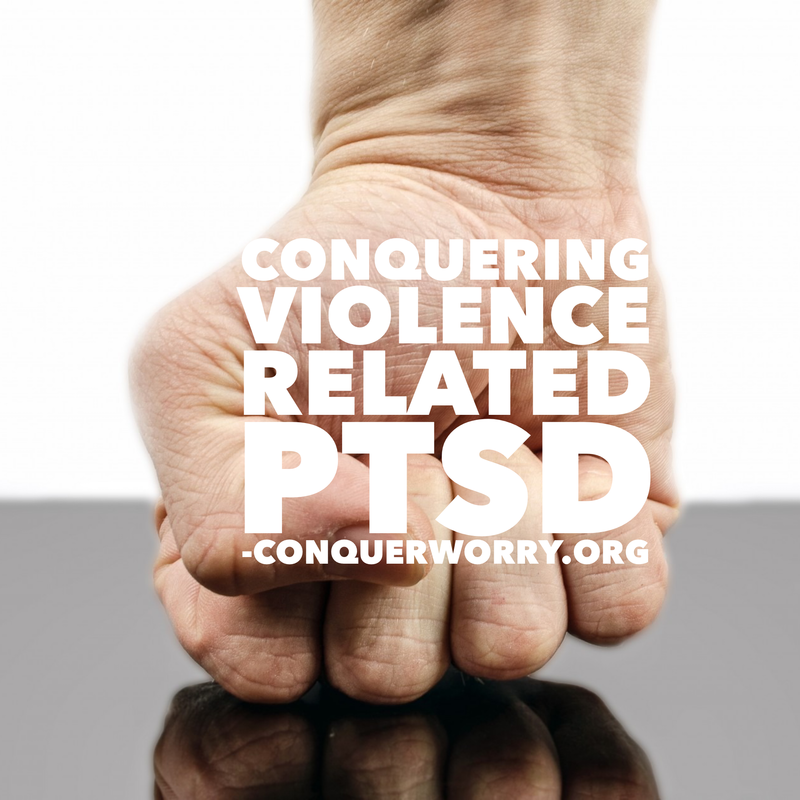
Positive, inspiration, happy, content, care free, cheery, these are just some of the terms that have been used by people to describe me recently, to be fair, I’ve probably used them myself. I’m just beginning to accept the inspirational one as I find this a bit overwhelming and it doesn’t sit right with me to describe myself as such but I’ve slowly began to realise that inspiring people is maybe not a bad thing. I’m not out to change the world, I’m not wanting to be part of a revolution, I don’t even know if inspire is the right term. I simply want more people to pull through the battles that I pulled through and to find this sense of contention, empowerment and positive way of thinking that seems to be flowing through my mind and way of thinking. This time last year I was in a mess both physically and mentally, my mind was full of so much self doubt, illogical thinking, soul destroying anxieties, fears that made me believe I couldn’t function and live in this world and in a society that appeared to be filled with so much evil, pain and suffering. There was a darkness that engulfed me. Negativity in my outlook and the words I spoke, I was low, defeated, overwhelmed by so much pressure pushing down on me. I don’t know if I ever seriously considered taking my own life, I often thought about how I wouldn’t be suffering anymore and fighting the daily battles I was fighting, I certainly could understand why someone would take their own life. I was desperate for my mind to slow down, for my thoughts to be logical again. To shift the depression that seemed to take the shine out of my life and make me so negative, irritable and argumentative. I wanted to be me again, in fact I didn’t, I just wanted to be normal, I wanted to be like the cool, self assured folk that I would compare myself to, you know, the ones without worry, the ones who seem to have it all, life seemed so easy for them. Mine? Mine was a disaster, out of control and it was always going to be that way, especially as I was going nuts, turning mental, couldn’t sleep without having a those soul destroying nightmares, I’d randomly have wee flashbacks to when I was attacked, I’d avoid my mates and my girlfriend at the time, they’re better off without me anyway was how I’d justify it to myself. Now I don’t want to be like those normal people, the cool and self assured people, know why? I don’t believe they exist. Since I opened up about my problems and my battles with PTSD so many people have confided in me about their worries and fears, the feelings that haunts them, the fears they have or how they can relate to aspects of my blogs and you know what? Most of them are the self assured and confident folk that I wanted to be like. I think what happens is we all worry, we all have fears, we all have anxieties that get in our mind and chew away at us from time to time but some of us just have the skills to cope or know how to hide it or handle it better. I say we all worry or have fears but really that’s inaccurate as I don’t anymore and that’s thanks to my breakdown, the help of some amazing family and friends, a top class psychologist and random strangers who get in touch with words of encouragement or simply to tell me their stories on the back of these blogs. My positivity and contention comes from the work I done with my psychologist Laura, the CBT she carried out and the way she made me address my fears and control my thinking and my thought process is where things turned around for me. You can see the methods see used in my previous blogs. It’s all about challenging your thoughts, looking realistically at the chances of your worst fears happening and how much of an impact will they have on your life in 5 years time. I’m stress free now as well and that’s been a massive help, the stress thoughts are gone and that allows your mind to work more logically. You think irrationally when you’re stressed, I placed so much emphasis on staying safe and that in turn caused me to avoid doing the stuff I loved with the people I love, that disconnection soon causes a sense of loneliness that plays a part in destroying your self esteem and adding to the depression. Staying connected is a massive part of beating depression and anxiety. Along with giving a bit back, getting active, being open and honest about your struggles and avoiding alcohol, anyway this is all old ground covered in previous blogs. When I first wrote these blogs it was about, about apologising, getting my thoughts and fears out of my mind and out there so family and friends knew what I had been through and what I was going through daily, now they’re about giving that wee bit of hope to someone out there who is sitting feeling the same way I was this time last year. You know what? Maybe I do want to inspire, I want to get into that persons mind and hit a chord with them, I want them to read all my other blogs, see how desperate and low I was, see how I’d gave up hope and thought I was destroyed, life was going to be a constant battle and be on top of me forever. Well you know what? It isn’t. I don’t say this arrogantly or in a sense of screw you look at how well I am doing. I say it with a sense of, if I can turn my struggles around and become a so called inspiration then what’s stopping you? Will it be like it is the now forever? Can you give it a go? I was so weak this time last year, I had a sense of inferiority and you could feel the anxiety off of me. My actions were strange where as now I’m empowered, confident, passionate about spreading the word about the benefits of being open and honest about your mental health. Mental health illnesses are as real and as harmful as physical illness. It’s not been easy to get to where I am. Facing those fears was horrible, pounding the streets at night in the dark, hanging about outside pubs, standing in busy bars all the things I avoided for the fear of being attacked again. You know what causes these fears? The stress voices in your mind. Before I was attacked none of these fears bothered me, the trauma of what happened to me caused my thinking to change, I had to regain control of this and I did. It wasn’t for a minute easy but it can be done. Maybe I’m just lucky, maybe I just had a right good support network who understood and pulled me through, who knows but I hope that if you’re sitting there toiling you might see that it’s worth a shot, can it really be any worse than what you’re going through just now? Positive thinking is an incredible and powerful tool, since I’ve addressed my fears and anxieties I’ve gained a place a university to study Psychology I’m hoping to qualify as a clinical psychologist and try to use the experiences I have to get others back on track. I do some voluntary work with Victim Support and that’s been a help to me as well. That sense of giving a bit back and also seeing others going through what I went through makes me feel less alone, less illogical. I’m not a victim any more I’m part of an exclusive club where I’ve went through some horrible trauma and times but came out at the other end stronger and prepared to break the stigma that surrounds mental health. Basically all I want is for someone to read this and think, right let’s give this a go. Get that help you need, I’m no expert and I’ll probably not have the answers you need or are looking for but I can tell you what worked for me. Anyway I think I’ve said what I wanted to say. You aren’t alone and you certainly aren’t the only one who is having those thoughts and it can be beaten or at least controlled. I want to thank every single person who has helped me over the last year, be it a text, a tweet, a deep chat, words of wisdom, everyone has been incredible and I’ll never forget that or let you all down again. I’ve got faith and belief that this has all happened for a reason and I’ll use this to do some good, I’ll inspire as many people as I can, I’ll use what was once a negative to achieve so many positive outcomes. Keep on keeping on Peace and Love 'Weasel' Kevin Welsh Kevin I sufferes from PTSD and got a bit lost for a while. He's now trying to spread the word regarding mental health and breaking the stigma. Connect with Kevin on Twitter: @weaselblogs 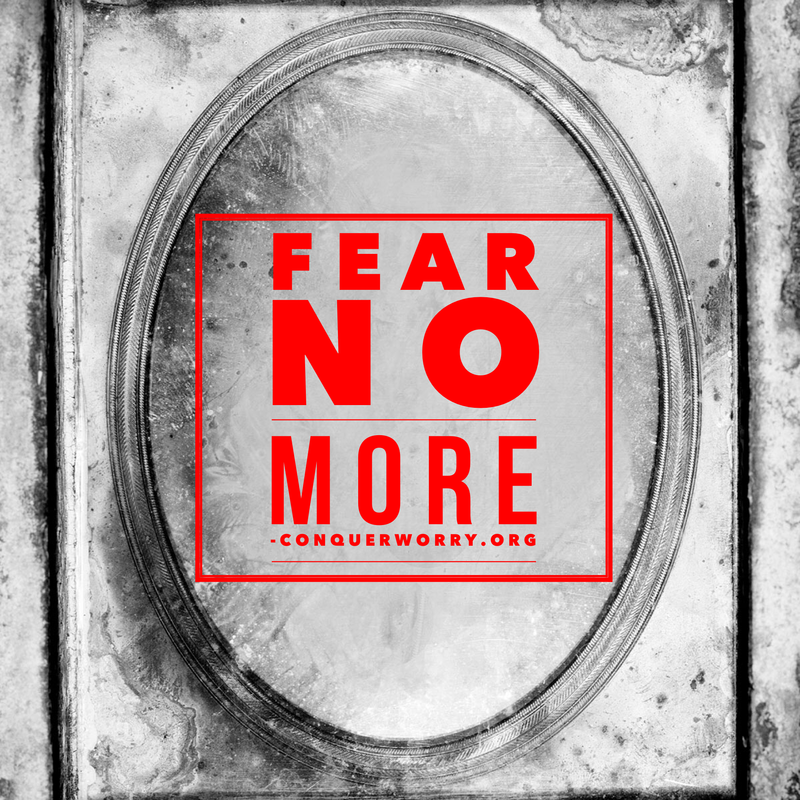
I had my first panic attack at the age of 16, I had always been an anxious child but it tended to come in “waves” and it just seemed to be extreme nervousness. I was driving to a friend’s house when it hit me. One of the worst things about panic attacks is that you remember each and every one, where you were, you were with and what time of day it was. I was alone at an intersection I had passed every day on my way to school and it was at night. My hands started shaking on the wheel and my stomach dropped like I was on a roller coaster. I was sweating and felt like I couldn’t breathe or see straight. I quickly turned the car around and zoomed home, scared for my life and unsure of what had just happened to me.
After this episode I stopped going out with my friends and struggled in many different situations, having panic attacks on a daily basis. I was finally diagnosed with panic disorder with agoraphobia a few months later. This affected me to the point where I couldn’t even get into a car and drive to the end of my street without having a full on panic attack. I used to swim competitively and the fear and anxiety took over my life so much so that I had to stop racing. I was letting the anxiety control my life as it quickly passed me by. I could not understand how my friends were able to so easily drive miles from their homes with no fears or anxiety. I continued receiving help and meeting with different doctors, but every day was a struggle or an argument. I would fight with my parents because I could not go to school without having multiple panic attacks in class and I would beg them to let me stay home. These panic attacks continued throughout the day and I was too embarrassed to tell my friends or teachers what was going on so I struggled in silence. Eventually it came time to leave for college and with the help and support of my parents and doctors I left for the University of Illinois to study Speech and Hearing Science. It was there that I became much more comfortable with myself and with discussing mental health and illness. I learned that the minute you become afraid of the panic is when it truly controls you. I am now 22, I just graduated from the University of Illinois with honors and I am going on to graduate school to study speech-language pathology. I still struggle with my anxiety but it gets so much better, I wish someone had told me that. I wish mental illness was not stigmatized to the point where I felt uncomfortable talking about it with some of my closest friends. Whenever I had a cold or the flu I told them I was sick without a second thought but for some reason I was so embarrassed about this part of my life that I couldn’t bring myself to share it with them. I want those still struggling to know that it may be hard to see when you’re in such a dark and hopeless place, but there’s a light at the end of the tunnel. Samantha Medland 
About Samantha
Samantha is a 22 year-old graduate student studying speech-language pathology. She has struggled with anxiety and panic disorder for six years and continues to overcome obstacles daily while supporting and advocating for others. You can follow her story through her Instagram @samanthajamie28 or Twitter @samanthajamie28. 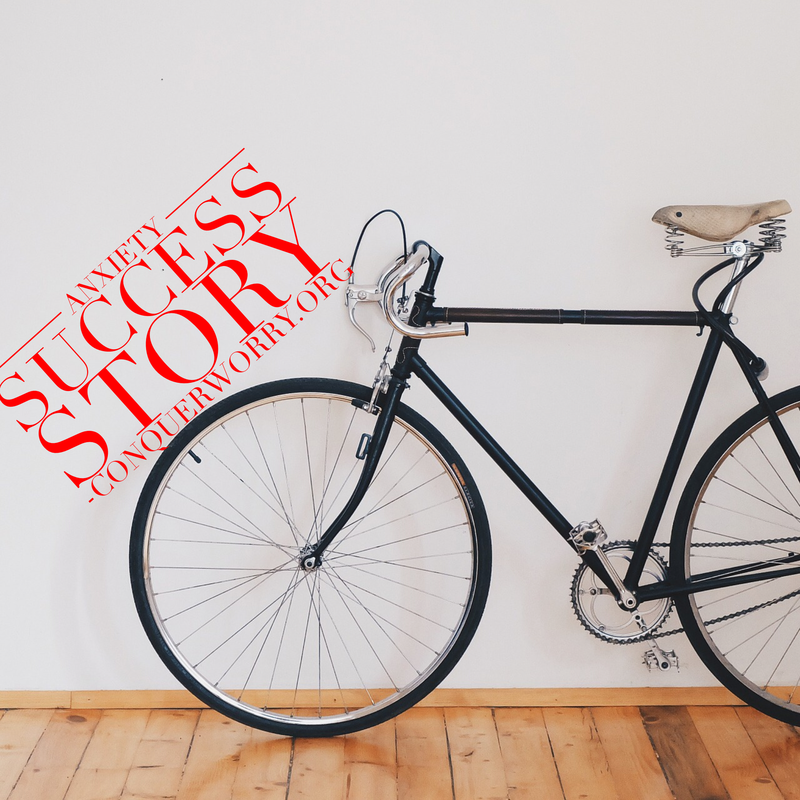
I wanted to share with you and celebrate my personal victory today. It was a moment where all my anxiety triggers were pressed at once, but instead of succumbing to panic I breathed through it, I talked to myself logically about why I was ok, and I persevered while keeping my cool! What an achievement.
As you can see from the title I tried Soul Cycle for the first time last weekend. A friend has been going for months and is completely OBSESSED. Then one day she said to me “I cried at Soul today.” “OMG why?!” I asked. “I prefer my students in ponytails so I can imagine them…as ponies.” She told me “The music was just so perfect, and the instructor was saying all the things I needed to hear to deal with the tough shit in my life, and I was really feeling it, so I cried. You’ve got to come. It will change your life.” “Ok, I’ll try your cult.” I thought. I’ve seen Kimmy Schmidt. I know what goes on at these places. So I signed up. I mean, it wasn’t quite that easy. First I had to call the studio and buy my $20 First Time Ride (a huge discount from the normal $35). Then I had to be on the computer at precisely 11:59am on a Monday so that when the clock struck 12pm I could refresh the screen and reserve a bike for a Saturday class with Pixie (yep) before it sells out within 30 seconds. Seriously. I failed at this the first week. The second week I was successful and even able to get the bike right next to my friend! I knew the class would be hard. I was walking in with some nerves because I was anticipating challenge and I didn’t quite know what to expect. But I have been to enough yoga classes to know that you can’t let competition and ego push you to do more than you can do, especially when you’re a newbie, and I was going to stick to that. My friend was being a doll and giving me all the advice she could beforehand. “Some of these women are beasts. They’ve been doing it a long time. Don’t feel like you need to compete with them. I was sore for a week after my first time.” Then I saw the people coming out of the previous class. They looked…awful! They were bright red and soaked in sweat. Like, somehow wetter than a fully drenched person, because they were actively producing wetness. My friend whispers to me “I feel like that teacher isn’t as good. They never come out nearly as sweaty as we do.” “Aca-WHAT?!” Then we walk into the room and I see the real reason these people were purging bodily fluids at such an alarming rate. The room is HOT. Not heated, just not air conditioned, and it is so much smaller than I had imagined and packed as tightly with bikes as it could possibly be. And it’s DARK. The only light in the whole room is coming from about 6 candles placed around the instructor’s altar. I lock my feet into the pedals and a staffer shows me the emergency button to press “If you start to feel faint”. HOT?…CRAMPED?…DARK?…LOUD?…FAINT?! These are literally ALL of my anxiety trigger words. I know right then and there that this is not my kind of thing. But what to do now? I have already raised my hand and singled myself out as the sole newbie, and the entire class has applauded for me. I could gracefully(?) leave and never come back, which would be ok, but what I really want to do is stick it out, breathe through the experience…and then never come back. And the voice in my head said “Reba, you can do this.” So as we start pedaling I make the choice to stay calm and not panic. First I firmly resolve that I am never going to push myself to the point of extreme exertion. I am going to ride at a reasonable pace, keep the resistance low, and half ass all the “bike-ography”. That way there’s never even a chance that I would actually become faint. Then I had to get over the less than ideal environment. Since the music’s too loud and it’s too hot and the bikes are too close I put a little invisible dome around my personal area. That is my personal meditating space. I didn’t look up and around at everything else. I stayed in the world of my bike, with my little towel placed over the handlebars just so to match everyone else, and my little water bottle in it’s holder which I reached for frequently so I would never have a reason for my anxiety monster to think I was getting dehydrated. This class is only 45 minutes! I can do this for 45 minutes! I can do anything for 45 minutes! I made it through the class. There were even times when I thought “Hey, I’m not doing so bad at this.” Then the class finally ended, and everyone applauded for me…again. Then I walked out of the class and thought “Oh I feel bad.” But not fainting bad. And not panic bad. Just like I’d done an exercise class that was way more taxing than probably is necessary. I went home and drank 2 cans of coconut water and slept all day, but I didn’t panic! And that is my success story. This episode is brought to you by Tina Fey, Ellie Kemper, and the number 10. Thank you ladies for one of my favorite 48 hours of TV. Reba Buhr 
Reba Buhr is an actor, singer, voiceover artist, and host residing in Los Angeles, CA and the author of the blog Millennial Zen. She first became acquainted with her generalized anxiety disorder and her proclivity toward panic attacks while she was a sophomore at Occidental College. Since then she has devoted herself to studying and sharing effective coping methods so she can continue performing for a living while keeping panic at bay.
Connect With Reba Blog: www.millennialzen.com Twitter: www.twitter.com/millennialzen Facebook: www.facebook.com/therebabuhr Personal Website: www.rebabuhr.com 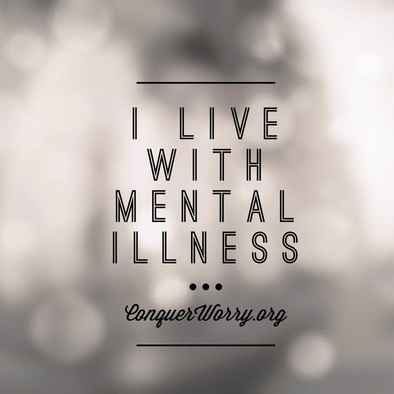
Day 1 in MY life with Anxiety
By Iain Jones Firstly this is not DAY 1 of my Anxiety, This is DAY 1 of when I have been able to publicly speak and share my experiences. Will there be a DAY 2? Who knows? What I do know is that MY Anxiety does not have an agenda or follows a stringent routine. So why the capital ‘MY’…… This is how MY Anxiety impacts on MY life, there are millions of Anxiety suffers around the world but like a fingerprint or DNA, it is unique to the individual. Some people may agree and relate to what I say, some people may not, that is fine, I am not controversial but at the same time these are MY experiences and not a generic stereotypical attack on Anxiety and/or Mental Health. When did it all begin……….. I have suffered from Anxiety/Depression for approximately 16 years, the first episode back in 1999 when as a 21 year old I struggled massively with change and being alone. A new job opportunity saw me fly the nest for the first time and move away from my friends and family to an area not far away but far enough for me to feel the difficulty of integrating into a new society. I was young and naïve and my usual positive attitude became soaked up in the sponge of negativity and worry. Simple solution…. pack bags and move home. No, this was not an option, I didn’t want to be seen as a failure. Most nights were spent alone, I struggled to find the motivation to be part of a crowd. My nights involved myself and sitting in darkness, I had very little contact with my friends and family, yes there was mobile phones, just! but communication forms such as Social Media did not exist, even Text Messages, were at the time, unheard of. I was becoming a recluse, trapped in a life that I had pursued but one I couldn’t leave because of my sheer stubbornness. I did however create a wall, a wall that nobody could see through, I decorated the outside of this wall with all the things I wanted people to see and believe while I shied behind it, frantically replacing the bricks whenever I felt I had given too much away. I didn’t want help, I didn’t want pity, I just wanted it all buried under a blanket of denial. The strain of the false feelings and increasing levels of despair accumulated in a failed suicide attempt in 2000. THIS may surprise people who read this and know me, only my family and those closest to me are aware this. I am still haunted to this very day of the picture of my parents face when I regained consciousness, the sadness, the regret and sheer helplessness they had was truly heart breaking. My wall was demolished, I moved back home and I sought professional help. There is a lot of stigma attached to seeking professional help through counselling, Psychiatrists and even medication, especially in young adults. They feel somewhat embarrassed, ashamed even of having to rely on someone or something to enable to find the right passage back to normality. I was exactly the same, I fought not to be part of this, it was literally the brute strength of my family and friends that got me onto the Professional help highway and I am 100% glad they did. Taking a brief step back the present, I have to note that this was me then, not now. 16 years of finding my feet, maturing and incorporating MY own strategies with those of the professionals has removed me from that dark hole and I will never be in that situation (yes its a bold statement but it MY statement) again. My life now is full of positivity fueled by my unconditional love for my daughter and my passion to be the best Father I can be. Speaking of ‘Father’ I unfortunately lost mine when I was a young child through a Brain Aneurysm, was this instrumental to the events around 1999/2000? maybe, maybe not. I will never look for excuses or reasons for what happened even when people (the professionals) tell me otherwise. The death of my ‘Dad’ never really impacted on me, I was too young to understand or even grieve, to this day I have never grieved for him, does this make me a bad person? I miss him, yes. I regret not having my Dad in my life, yes. Has my life been worse without him, no. Controversial? I hope not. Everyone who has suffered from Depression and/or anxiety will all have their own reasoning or theories why they have. There is no external person anywhere to tell them they are right or wrong. I know that sharing MY experiences will not be the worlds answer to dealing with these issue but they are part of helping MY answer. Thank you for taking the time to read this blog, I do plan on posting more about MY present day battle with Anxiety Iain 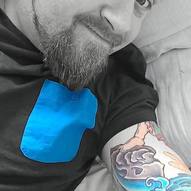
About Iain Jones: I am a 37 year old male and sufferer of Anxiety, that is all.
I intend to use this ‘blog’ to share my experiences within my world and how a day in MY life goes. This is not a diary, I am not Adrian Mole, this will be a sporadic account if and when I feel I need to. Blog: https://iainjon3s.wordpress.com/ Twitter: @iainjon3s 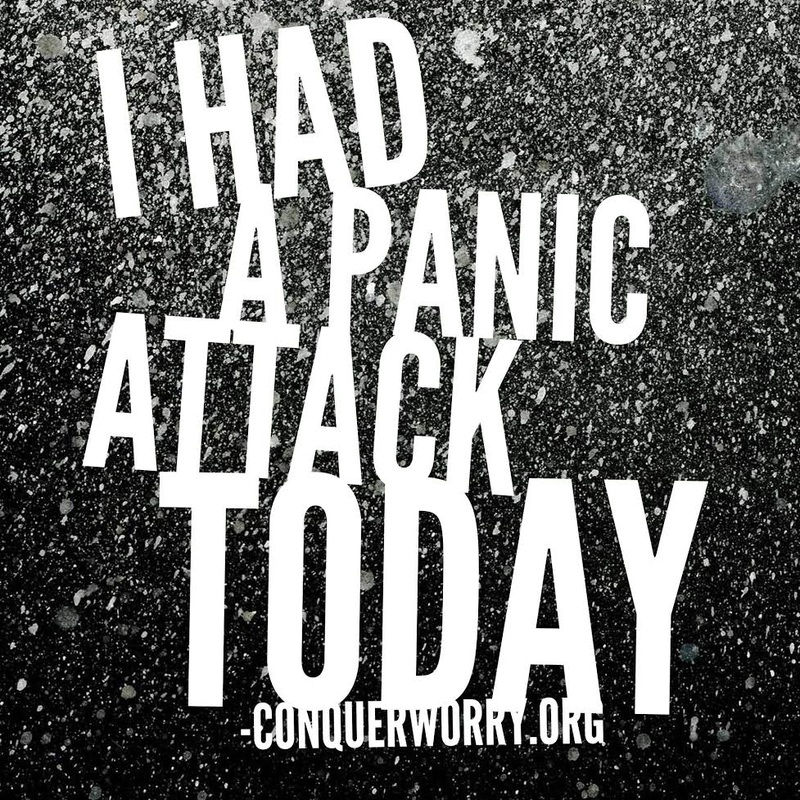
Not much to say about it. I’m feeling better now, out smoking a cigar. It was over a work issue that I don’t want to get into too much detail about here. Or that’s what triggered it. My anxiety issues run pretty deep, and even though I’ve made a tremendous amount of progress in managing it today seemed like a reminder that it’s always just right there, waiting for the right time to strike when I’ve let my guard down. It’s been awhile since I’ve needed a Klondike Bar (the nickname my sister gave the Clonidine). I may need to carry it with me for the next few days. But nearly as important as carrying it is recognizing that needing it is not a weakness. There are a number of tools at my disposal for managing the anxiety, from regular mindfulness meditation, taking quiet time for myself to work through issues (usually with a cigar) and being able to talk about it, either here on the blog or with someone, as I did today with my dad. Using those tools is a sign of strength, a reminder that I can manage the anxiety. The weakness is bottling it up or turning back to alcohol. Maybe weakness isn’t the right word. It’s the choice that won’t help me, but weakness has an air of judgment that I don’t want anyone who has made that choice to feel bad about. I’ve been there and it’s so hard to recognize at the time that it may not be a productive option. Anyway, I had a panic attack today. I’m trying to learn from it.
Originally posted at: paulsletters.com About Paul Banuski: Paul Banuski is a thirty-one year old managing his depression and anxiety issues. In March of 2014 he survived a suicide attempt, and since then has been treating his mental health through a combination of therapy, medication and mindfulness practice. He writes about his experiences at PaulsLetters.com, a blog that touches on mental health, religion, politics, media and how they intersect. He lives in the Finger Lakes region of New York. Website: www.paulsletters.com Facebook: www.facebook.com/paulslttrs Twitter: @PaulsLttrs E-mail: paul@paulsletters.com 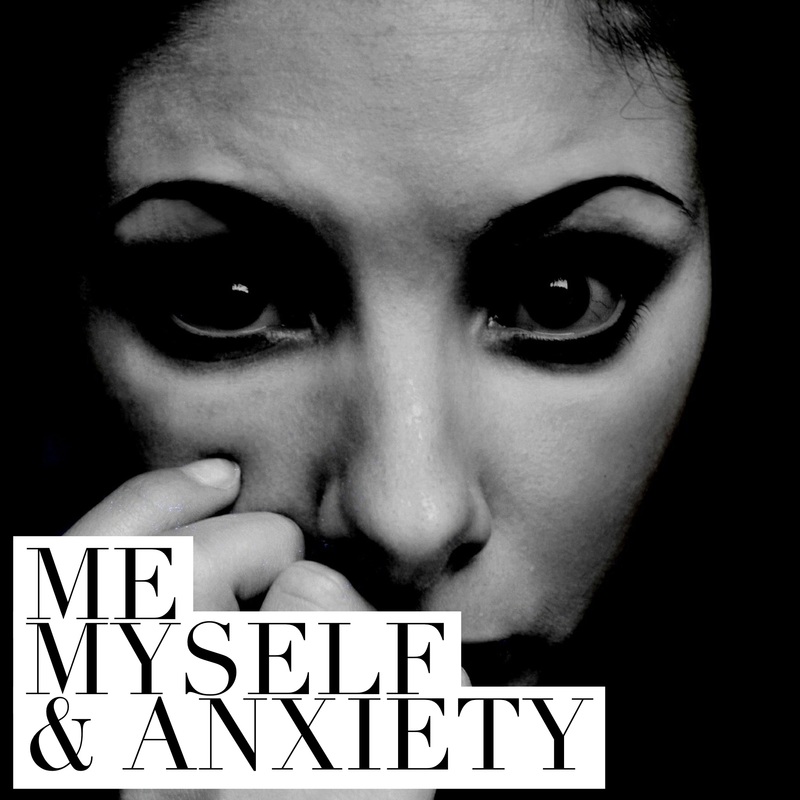
The major problem when it comes to Mental Health issues is not the person, not the illness, but the fact that such issues are surrounded by a cloud of silence and stigma.
Mixed anxiety and depression is the most common mental health disorder in Britain, with 9.7% of the population experiencing it. During my second year of University, the pressure of exams was looming and I found myself in a place I had never previously been – one filled with anxiety, feelings of failure and a constant fear that I would never be good enough to embark upon the career that I had worked so hard for. At the time that my journey with anxiety began, I was putting in 14 hour stints at the library – that seemed like normality for the majority of students at my University. I thought that I was fine, I had always prided myself on my emotional strength. That was, until it came to the date of my Contract Law exam and I had a panic attack in the library whilst I was attempting to read through my revision notes. It had taken me around two hours to read one page and it was clear that something was wrong. I didn’t want to have a panic attack, but I couldn’t stop it and, honestly, I had no idea what was going on. I didn’t know what a panic attack was, but I was left shaking and crying uncontrollably on the quiet floor of the library, 2 hours before what was, in my mind, the most important exam of my life. Of course, it wasn’t- that was the anxiety talking. I had been revising for around two months – I should have been ready for exams. I was ready, but my brain would not let me pass this wall of panic in front of me. Funnily enough, I actually had no idea that there was a problem with my mental health until the day that I had that first panic attack. Following that, things started to click in to place and I realised that, for the two months prior to that panic attack, revision had taken over my life and I was rarely eating and barely sleeping. My room was a mess (which was very unlike me) and, in all honesty, I was too. I sought help from my GP, and utilised the help of IAPT. I was given medication to help to control my anxiety (Citalopram worked really well for me and I, thankfully, haven’t had to chop and change pills to find what suits me). I attended Cognitive Behavioural Therapy which taught me to change the way that I thought. Apparently, doing this means that I am in a minority – a YouGov survey of 2300 adults in Britain carried out for Mental Health Awareness Week 2014 found that one fifth of people who have experienced anxiety do nothing to cope with it. Indeed, fewer than one in ten people have sought help from their GP to deal with anxiety. At first, admitting that I had a problem made me feel that I was weak. Once I had come to terms with my anxiety disorder and felt that I could tell those closest to me about it, I found that most people’s instant reaction would be to ask ‘Well, what are you anxious about?’ There was absolutely no malicious intent behind that question, it was just a question that simply could not be answered. As Critchley (2009) has stated, “If fear is fearful of something particular and determinate, then anxiety is anxious about nothing in particular and is indeterminate”. It can be difficult to come to terms with the fact that you have anxiety whilst at the same time having absolutely no idea why. Now that my anxiety disorder is behind me and I have learnt to cope with any feelings of anxiety that I may experience, I feel slightly angry when I look back at that time of my life – that I didn’t know that I had a problem until it was too late. If only more people spoke out about mental health issues, and the help available were promoted further, people may not have to wait for their mental health issues to manifest themselves externally before they are able to receive help. People simply do not talk enough about mental health issues and, even whilst writing this, I feel a sense of worry that people may look down upon me because of my experience with anxiety. That is wrong. In the UK, one in four people will experience some kind of mental health illness in the course of a year. That’s a lot of people, and it’s likely that the majority of those people are too frightened to speak about their experiences, for fear of discrimination and being ridiculed. We need to raise awareness of mental health issues and let people know that it is ok to speak out about their experiences. Speaking of your experiences with a mental health issue, whilst a bit daunting at first, is actually incredibly refreshing and, you never know, you could be the difference between someone suffering in silence or attending their GP and getting the help that they need. During Cognitive Behavioural Therapy, I learnt more about what a panic attack was, and what the early signs of an attack were for me personally. Some techniques which helped me included focusing on something other than the attack. It used to be that I would be so worried and anxious that I would have a panic attack that I brought one on myself. My therapist told me to focus on colours, perhaps the colours of different leaves on a tree. I personally preferred to rub tea tree oil or some other scent on my wrists and simply focus on smelling that. It sounds so simple but it really did work. Another simple thing that can make a huge difference is to talk about any issues you may be having with those around you. I was able to talk to my friends and my partner who were incredibly helpful and, as some of my friends also had mental health issues of their own, I was able to use some of their advice (the smelling scent distraction actually came from my best friend whose mum is an aromatherapist). I also really like ‘The Quiet Place’ at http://thequietplaceproject.com/thequietplacewhich had the effect of basically bringing me back to normality. For me, my anxiety was mainly linked to exam stress and the general hardship of life. The Quiet Place is great as it allowed me to take a step back and really put my fears into perspective, the majority of which were totally irrational. Mental Health is no longer something that should only be spoken about behind closed doors and I hope that we, as a society, are now moving in the right direction towards a better understanding of mental health issues and a more accepting approach towards those who suffer. In talking about mental health issues, we raise awareness and it is that awareness of such issues that will help those suffering to get the help that they need. I have struggled with anxiety and have overcome it, hopefully by speaking out we can help others to do the same. Ashlee Originally published: ashleementalhealth.wordpress.com 
Ashlee is an Admin Assistant at Blavo & Co Solicitors in Gateshead and has a keen interest in Mental Health, hoping to become a Mental Health Solicitor in the future.
Connect with Ashlee : @AC_mentalhealth |
Build Your Action Based Stress Reduction System
Popular PodcastsOlympian Suzy Favor Hamilton - From Fame to Prostitution to Advocacy
Hall of Fame Basketball Star Chamique Holdsclaw on Mental Resilience Diana Nightingale on her husband Earl Nightingale's Principles for Mental Health Success JoAnn Buttaro on Date Rape & PTSD Survival Story: Its Never Too Late Gabe Howard on BiPolar Advocacy Phil Fulmer on Teen Suicide Prison, Bipolar and Mania with Andy Behrman Columbia Univeristy's Dr. Rynn on OCD Archives
March 2018
Categories
All
|

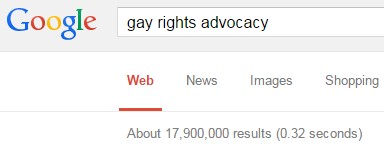
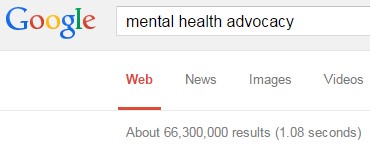

 RSS Feed
RSS Feed





